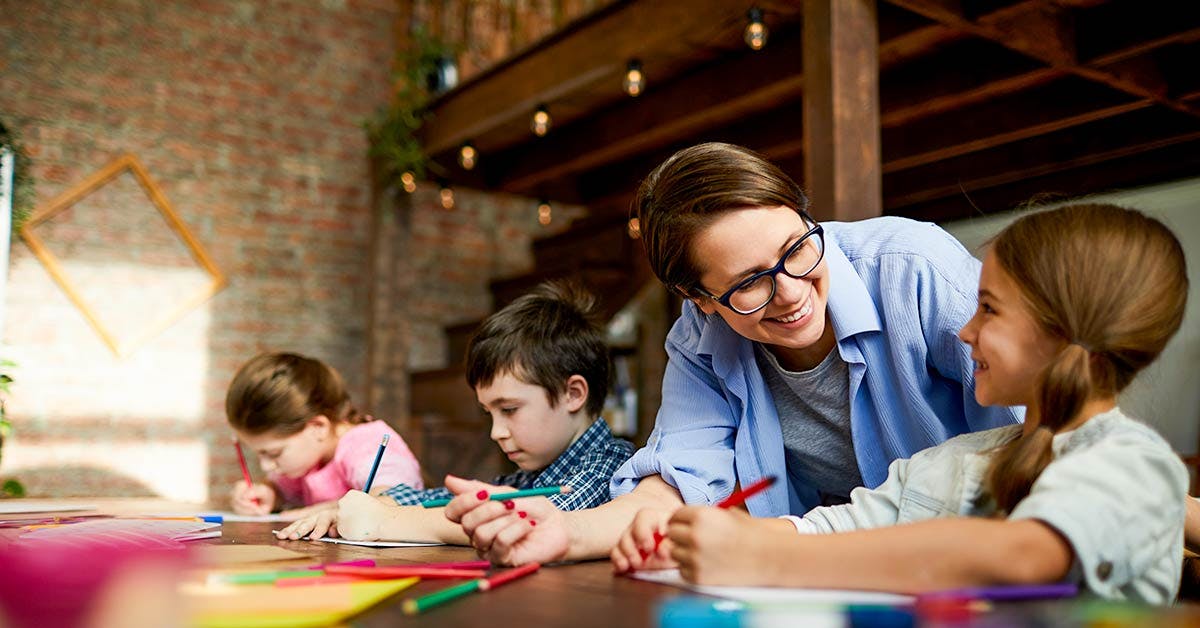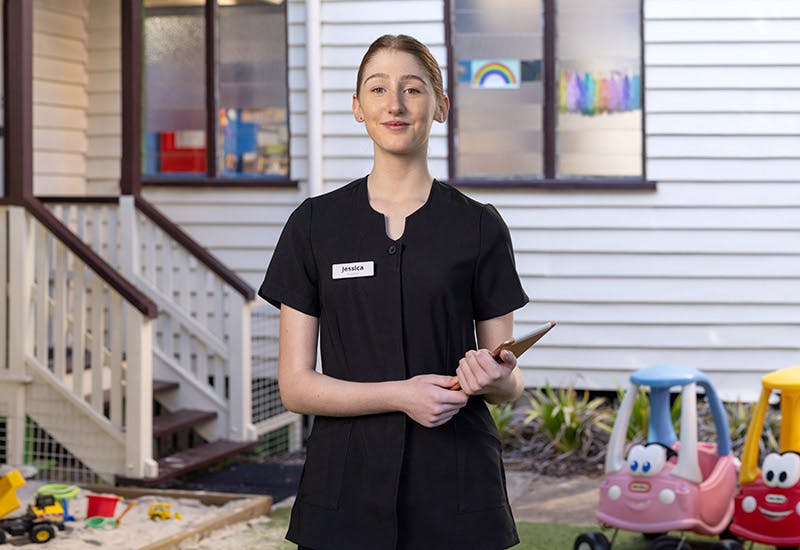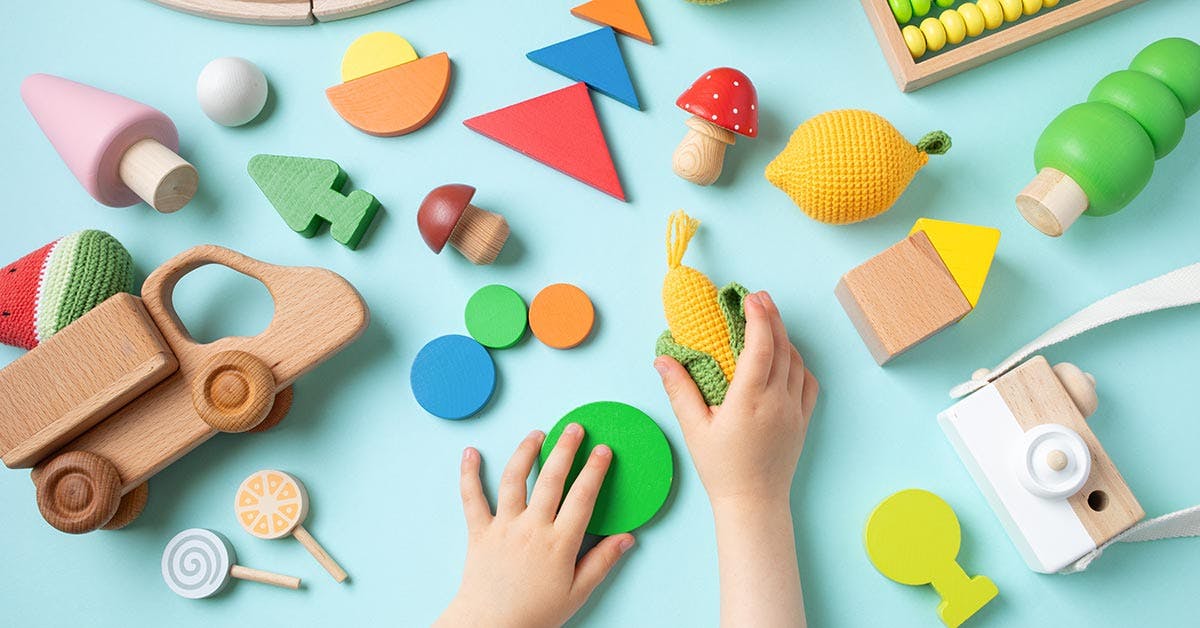14 May 2025
What Do Early Childhood Educators Do?
Wondering what Early Childhood Educators actually do at work? Your responsibility will go far beyond just watching kids.
With a growing demand for quality childcare across Australia, now’s a great time to get started in Early Childhood Education. But your first step is understanding what this rewarding career involves. Let's explore the daily responsibilities, work environments and skills needed to become an Early Childhood Educator.
Who are Early Childhood Educators
Early Childhood Educators work with kids from birth to five years old in plenty of different care settings. As an educator, you’ll create environments where children develop socially, emotionally, physically and cognitively before they start school.
Unlike babysitters who simply watch children, qualified educators plan learning experiences based on children's interests and developmental needs. You’ll get to watch their progress, document their development and work within educational frameworks.
Australia has different types of childcare workers:
Early Childhood Educator: An open-ended choice in which you could work in a wide variety of settings. Early Childhood Educators plan learning experiences, support children's development and help implement curriculum frameworks.
Childcare Assistant: As a Childcare Assistant you'll work under the guidance of more experienced staff in daycare centres. You'll help with daily routines like meal times, activity set up and supervision.
Kindergarten Assistant: Working alongside a qualified kindergarten teacher you'll help prepare children for school. You'll help children develop pre-literacy and numeracy skills and help manage the class.
Long Day Care Educator: In long day care centres you'll care for children for long hours — up to 12 hours a day. You'll work within structured programs while also focusing on the care aspects of looking after children all day.
Family Day Care Educator: With specialised training, you can run a family day care service from your or a guardian’s home. You'll care for small groups (up to four under school age) in a home environment, giving them individualised attention while following the same frameworks as centres.
Responsibilities of Early Childhood Educators
Early Childhood Educators spend their days doing much more than just watching kids. Here’s an idea of what you might do at work:
Plan and implement learning programs
Using frameworks like the Early Years Learning Framework (EYLF), you’ll design activities that support children’s development. This includes creating curriculum plans for play-based learning, art projects, outdoor exploration and early literacy and numeracy skills.
Ensure children's health and safety
From administering first aid to maintaining safe environments, educators prioritise wellbeing. This means you’ll be responsible for maintaining hygiene, supervising both active and rest times and spotting problems before they come up.
Support emotional and social development
Educators help kids understand their emotions, build relationships with other kids and develop confidence. You’ll model appropriate behaviours and guide children through big feelings and conflict.
Communicate with families
Educators build relationships with parents through daily conversations and online communication. You’ll share insights about how the day went and work together to support their kids’ development.
Create welcoming environments
Educators create a safe space for all children. You’ll encourage them to explore and grow in a way that makes sense to them.

What do Early Childhood Educators do day-to-day?
So what exactly happens after you clock in? Since there are a few different routes you can go down in Early Childhood Education, your day could look a lot different to someone elses. Not only that, but the nature of the job means that no two days are the same.
But in general, most jobs will include a mix of planned activities and responsive care.
Early mornings involve welcoming children and families and helping children settle in. Christie, who has over 25 years of experience in Early Childhood Education, says this is the best part of the day:
"My favourite part was those first moments in the morning when the doors to the centre would open. That feeling of having children run to you when they arrive and knowing you can be a safe haven for children and guide them through their first five years of life."
The rest of the day will be split between play-based learning, rest times and meals. Late afternoons usually involve more relaxed activities before the kids are picked up.
Where do Early Childhood Educators work?
As an Early Childhood Educator, you could work in a few different settings:
Long day care centres
Kindergartens and preschools
Homes
Early intervention centres
Mobile services
Work hours vary depending on the setting. Long Day Care often requires shift work, while kindergartens follow school hours. Family Day Care providers may have more flexible options.
How to become an Early Childhood Educator
Your path to becoming an Early Childhood Educator in Australia is pretty straightforward. Here’s what you need to do:
Get qualified
At a minimum, you'll need a CHC30121 Certificate III in Early Childhood Education and Care or be actively studying toward it. At Foundation Education, this course takes 9–12 months with an accelerated study approach or 12–18 months with a flexible learning pace, and includes 160 hours of work placement.
Think about specialising
If you're interested in Family Day Care, the CHC30121 Certificate III in Early Childhood Education and Care (Family Day Care) has specialised units for this setting.
Get practical experience
All qualifications include mandatory work placement hours where you'll apply your learning in real childcare settings. You’ll need to sort out your Working with Children Check before starting.
Consider further education
For leadership roles, the CHC50121 Diploma of Early Childhood Education and Care builds on your Certificate III knowledge and opens doors to higher positions.
Foundation Education offers flexible online study options for all these qualifications, letting you balance your studies with work and family commitments.
Start a career that makes a real difference
Early Childhood Education is a chance to help children during their most important developmental years. As Christie puts it, "This is the career to pursue if you would like to become an Early Childhood professional that is an advocate for the early years. You will be supporting children to become incredible humans."
Still wondering if a career in childcare is right for you? Explore our Early Childhood Education and Care courses today to learn more about what you can do with a qualification.
Related Articles

National Child Protection Week: student action guide for future ECEC educators
National Child Protection Week: a student guide to child-safe practice in ECEC with seven practical actions and links to Cert III and Diploma pathways.

Top Early Childhood Education Skills in Demand
Build the early childhood education skills Australian centres need and start a rewarding career in a sector tipped for strong growth through to 2030.
Proud member of

© Foundation Education | RTO Number 22557
